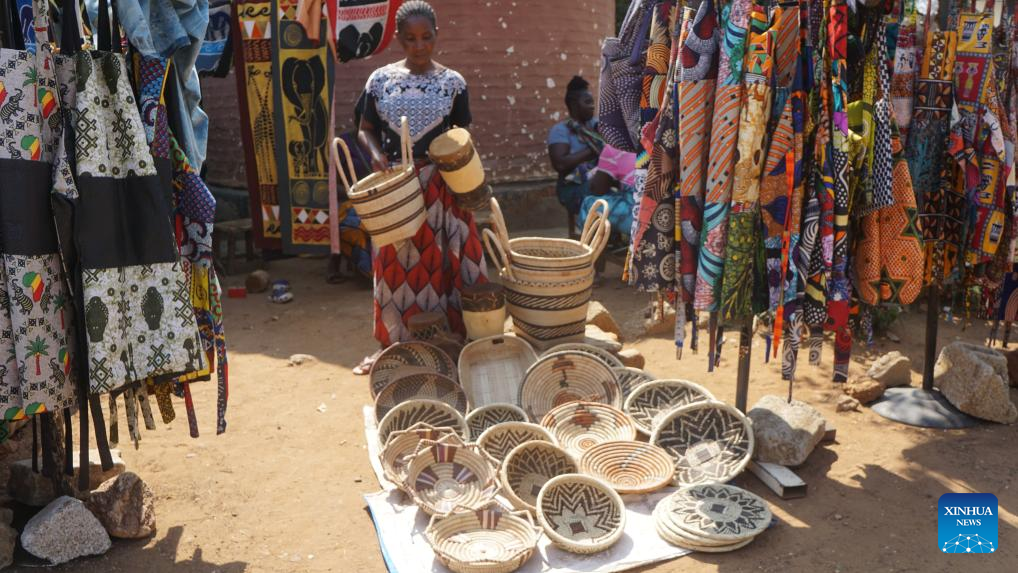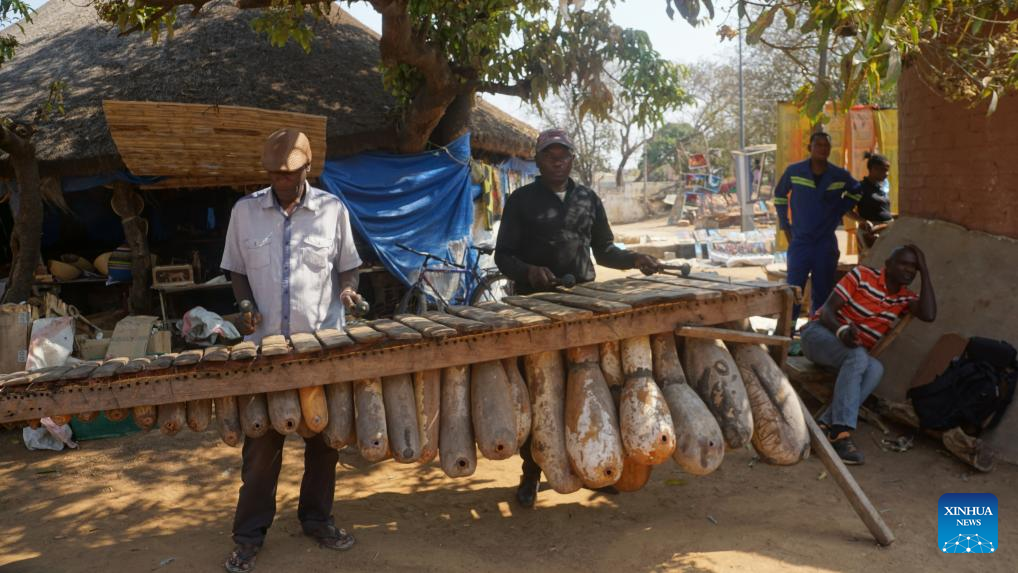
A trader sells reed baskets at Kabwata Cultural Village in Lusaka, Zambia, Sept. 8, 2025. (Photo by Lillian Banda/Xinhua)
LUSAKA, Sept. 12 (Xinhua) -- In recent years, Zambia's traditional ceremonies have gained popularity, driven by increased publicity and a growing desire among people to reconnect with their cultural heritage.
These events, which showcase Zambia's rich heritage, are increasingly attracting large crowds of visitors and locals alike, providing ample opportunities for businesses to thrive.
The ceremonies have become a significant boon for small-scale businesses, transforming cultural celebrations into vibrant economic activities.
Alice Banda, a resident of Lusaka, the capital of Zambia, has found great success selling traditional wrappers, locally known as "chitenge," at various ceremonies across the country.
"There is a huge demand for quality chitenge wrappers during these events because people want to wear attire that represents their culture," explained Banda, who recently attended Likumbi Lya Mize, an annual traditional ceremony of the Luvale people in North-Western Province that marks the end of the rite of passage for young people.
The 24-year-old said she keeps a calendar of all major traditional ceremonies in Zambia and is always moving from one event to the next to sell her merchandise.
"I have made a fortune doing this since I began three years ago," she said with pride.
Margaret Zimba, another resident of Lusaka who specializes in selling handcrafted sandals and trendy clothing, said she has managed to improve her livelihood through strong sales at traditional ceremonies.
Zimba, 35, has been attending these ceremonies solely to grow her small business, which has seen significant growth in profits.
"Attending traditional ceremonies has allowed me to sell my products and earn far better returns compared to trading in one place," Zimba added.
It is not just individuals like Banda and Zimba who are cashing in on traditional ceremonies; even local small-scale traders in areas where these events take place are benefiting.
These traders sell a variety of traditional artifacts such as bowls, baskets, and mats made from reeds, as well as a wide range of curios to visitors. They have seen a steady increase in sales during these ceremonies.
One such trader is Tommy, 43, who runs a small stall selling handcrafted baskets and hats in Chipata, eastern Zambia.
"During the Ncwala traditional ceremony in February each year, we see a huge influx of tourists who are interested in buying handicrafts and a host of other items. This has greatly boosted our business," he said.
Moreover, traditional ceremonies have also provided employment opportunities for local communities. Many people are hired to provide services such as catering, entertainment, and transportation during these events, thereby contributing to the local economies of the areas where the ceremonies are held each year.
"Traditional ceremonies have gone beyond just preserving Zambia's cultural traditions; they have become a driving force helping small-scale businesses succeed," said Susan Mwananyanda, chairperson of Kabwata Cultural Village, a heritage site and tourist hub located in Lusaka. ■

A maker of traditional Ngoni artifacts poses for photos with his products in Lusaka, Zambia, Sept. 8 2025. (Photo by Lillian Banda/Xinhua)

Two men play a traditional instrument used in western Zambia for ceremonial and celebratory activities, in Lusaka, Zambia, Sept. 8, 2025. (Photo by Lillian Banda/Xinhua)
